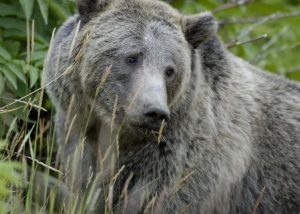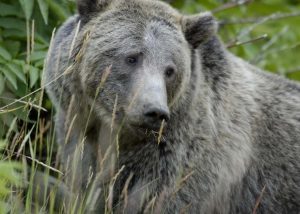
Colorado clearly has it Backwards… They Clearly need to terminate Hunting Licenses for 5 years minimum.
FORT COLLINS – Colorado wildlife commissioners quashed wide opposition Wednesday and voted unanimously to embark on a controversial predator control experiment to euthanize mountain lions and bears — a $4.5 million effort aimed at reviving the state’s dwindling population of deer.
While previous science points to human development and degradation of habitat as the primary problem, commissioners said recent Colorado Parks and Wildlife research persuaded them to test a hypothesis that manipulating the number of bears and lions might help stop deer’s decline.
“We’re trying to understand what contributes to it,” commissioner Chris Castilian said shortly before the vote. “Our main motivation is to get to the bottom of the deer declines we’ve seen. … Everybody is concerned about the mule deer population. We need to be very sensitive as stewards of that. … More science is always better.”
But the decision, after more than a year of deliberation and delay, has set off opposition from the Humane Society, wildlife conservation groups and outside scientists who argued killing more lions and bears is costly and ineffective.
Colorado State University wildlife biologists, and a coalition of groups from the Sierra Club to Wildearth Guardians, blitzed commissioners with evidence that loss of once-vast deer habitat, oil and gas development, limited food and other human-induced disturbances – not predators – are primarily to blame for the decline of deer. Some accused CPW of favoring hunters’ interests in increased deer at the expense of other species. Hunting and fishing license revenues provide 90 percent of CPW’s funding.
The National Wildlife Federation, a conservation group that represents many hunters, stopped short of challenging the Colorado decision but emphasized a need to address habitat loss.
“We believe that habitat degradation from energy, and residential development, which has been confirmed by CPW biologists for years, should be the primary focus of scientifically-based wildlife management,” NWF’s regional director Brian Kurzel said. “But this requires that CPW has adequate resources, including diversified and increased funding. CPW can be better prepared to take on the huge issue of habitat loss through incremental fee increases and broader species conservation funding that sportsmen and other wildlife conservationists can get behind.”
The appointed wildlife commissioners voted unanimously after hearing testimony from more than 40 residents who mostly rejected predator control. Commissioners also heard presentations by Jeff Ver Steeg, CPW’s assistant director for research, policy and planning, on details of euthanizing predators in relation to habitat loss and human development.
“We acknowledge that any and all those things can have an effect on mule deer,” Ver Steeg told commissioners.
“The Commission’s approval of the state’s two proposals imposes a death sentence on hundreds of Colorado’s mountain lions and black bears, including their dependent kittens and cubs, and the decision disregards thousands of Coloradans who voiced their disapproval of these studies,” Humane Society state director Aubyn Royall said.
Colorado’s predator control will target lions and bears in two areas: the upper Arkansas River Basin around Salida, and the Piceance Basin near Rifle. Starting this winter, CPW research crews will try to determine whether killing predators in these areas leads to increased survival of fawns.
The yes votes clears CPW crews to move ahead in their experiment to use cage traps, culvert traps, foot snares and hunting dogs to immobilize mountain lions and bears. Then those caught would be shot. Project documents show up to 15 mountain lions and 25 black bears would be killed each year.
Colorado’s deer population has fallen 110,000 short of the 560,000 deer that wildlife managers deem optimal.
State wildlife officials this year did not oppose plans to allow up to 15,000 new oil and gas wells in the heart of critical deer habitat in northwestern Colorado, even though agency researchers have acknowledged oil and gas development hurts deer.
The state’s wildlife managers have cut the number of deer hunting licenses they issue to fewer than 7,000 for the two areas where bears and lions would be killed. That’s down from more than 28,350 a decade ago. CPW depends heavily on revenues from fishing and hunting licenses to survive as a government agency with the purpose of taking care of wildlife for all residents of the state.

Comments
Stop this madness!